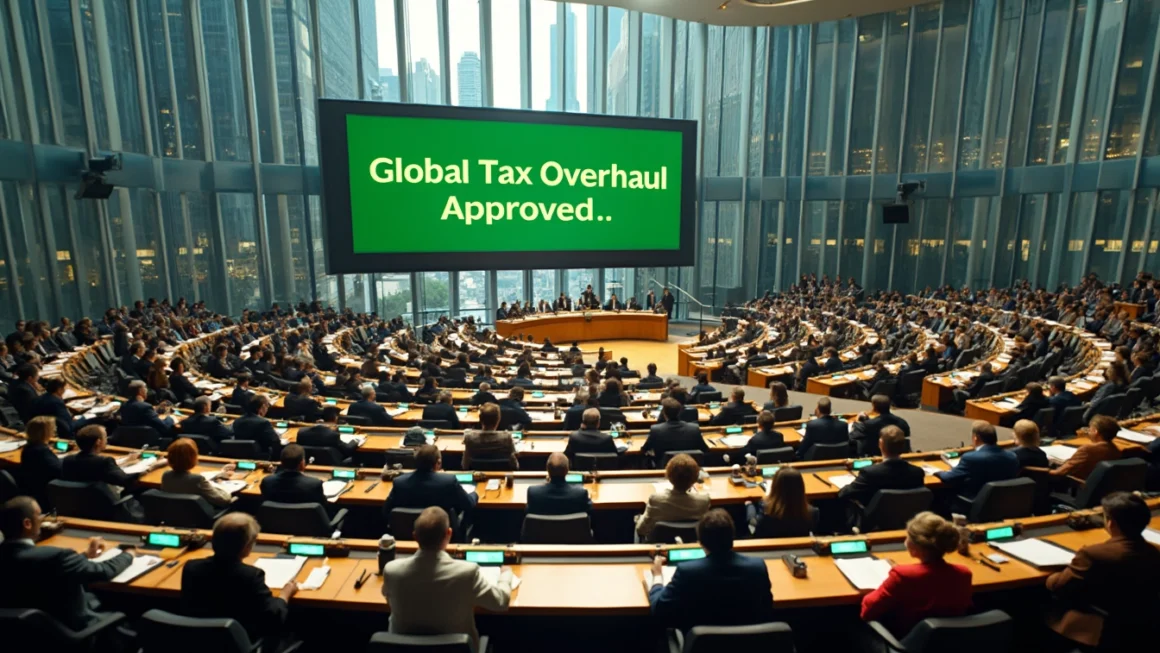In a landmark decision, the United Nations General Assembly has voted overwhelmingly in favor of beginning a historic global tax overhaul. This momentous step marks a significant shift in the international approach to taxation and could have far-reaching implications for countries worldwide.
The UN Resolution: A Game-Changer in Global Taxation
Table of Contents
The resolution, which was passed with an impressive majority, calls for the commencement of intergovernmental discussions on international tax cooperation. This initiative aims to address the longstanding issues of tax avoidance, evasion, and the challenges posed by the digital economy.
Key points of the resolution include:
- Establishing a framework for global tax cooperation
- Addressing tax challenges arising from digitalization
- Combating illicit financial flows
- Promoting fairness and transparency in international taxation
Global Support and Opposition
The resolution received widespread support from developing nations, who have long argued for a more equitable global tax system. However, it faced opposition from some developed countries, particularly those that have benefited from the current international tax arrangements.
Developing Nations’ Perspective
For developing countries, this resolution represents a crucial step towards achieving tax justice. Many of these nations have been calling for a more inclusive approach to international tax negotiations, arguing that the current system disproportionately favors wealthy nations and multinational corporations.
Developed Nations’ Concerns
Some developed nations, including the United States and several European countries, expressed reservations about the UN-led process. They argue that existing forums, such as the OECD, are better equipped to handle complex tax negotiations.
Potential Impact on Global Tax Landscape
The implementation of this resolution could lead to significant changes in the global tax landscape. Some potential outcomes include:
- More equitable distribution of tax revenues among countries
- Improved mechanisms to tackle tax havens and profit shifting
- Enhanced transparency in international tax matters
- Greater participation of developing countries in shaping global tax rules
The Role of Technology in Tax Reform
As discussions on global tax reform progress, technology is expected to play a crucial role in implementing and enforcing new tax regulations. Automation tools and platforms will be essential in managing the complexities of international taxation. For instance, automation solutions can help streamline tax reporting processes and ensure compliance with evolving global standards.
Challenges Ahead
While the UN resolution marks a significant step forward, the path to comprehensive global tax reform is likely to be challenging. Some of the obstacles that lie ahead include:
- Reconciling diverse national interests
- Overcoming resistance from countries benefiting from the current system
- Developing consensus on complex technical issues
- Ensuring effective implementation and enforcement of new tax rules
The Way Forward
As the international community embarks on this ambitious journey towards a fairer global tax system, several key steps will be crucial:
- Establishing a clear timeline for negotiations and implementation
- Ensuring inclusive participation from all countries, particularly developing nations
- Developing robust mechanisms for dispute resolution and enforcement
- Addressing the unique challenges posed by the digital economy
- Balancing national sovereignty with the need for global cooperation
Conclusion
The UN General Assembly’s vote to begin a global tax overhaul represents a watershed moment in international taxation. While the road ahead may be challenging, this initiative has the potential to create a more equitable and transparent global tax system. As negotiations progress, it will be crucial for all stakeholders to work together constructively to achieve meaningful reform that benefits all nations and promotes global economic stability.
The coming months and years will be critical in shaping the future of international taxation. As the world watches these developments unfold, the hope is that this process will lead to a fairer, more efficient, and more inclusive global tax framework that can address the challenges of the 21st-century economy.




